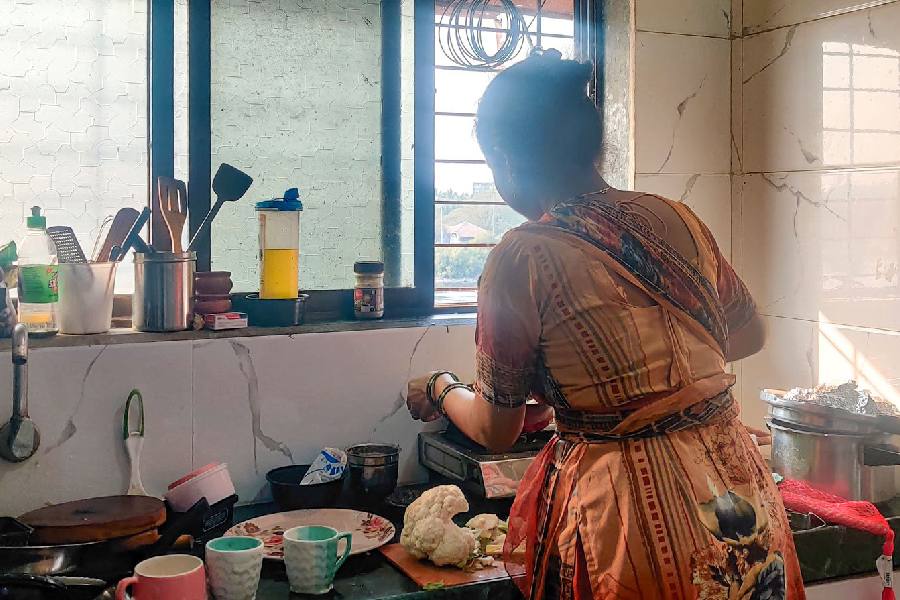India has roughly 4.75 million paid domestic workers, of which around 3 million are females, according to official statistics (NSSO report, 2004-2005). India has not yet ratified the Domestic Workers Convention, 2011 (C189) by the International Labour Organization and the domestic workers (regulation of work and social security) bill, 2017 has not been passed yet. The Indian State’s continuing reluctance to recognise domestic work as ‘work’ has meant the denial of basic labour rights to this workforce as well as the dignity of their labour.
While much has been written on the precarity of female domestic workers in India, I shall primarily use a feminist lens to look at the vulnerability of the ‘maid’ and her working body by taking up two (related) registers: the devalued nature of her work and the stigma attached to her ‘dirty’ body. A fundamental feminist agenda in relation to female domestic labour has been to recognise domestic work as devalued within patriarchal social structures. Marxist-feminists have rightly pointed out how capitalistic patriarchy depends significantly on unpaid and unrecognised social reproductive work carried out by women within the household, including housework and care work. The low-paid and often unprotected nature of female professional domestic labour adds an interesting twist to this tale — it facilitates the emancipation of the upper-class and/or middle-class women; they can conveniently shift the burden of housework to their less privileged counterparts. This brings us back to the age-old feminist question of how patriarchy hierarchises working bodies: whose work is worthy of recognition and how access to decent rights of a worker remains a fundamentally gendered question. The long history of the women’s movement in India seems to have failed in bringing into focus the issue of domestic workers within the larger feminist agenda of recognising housework as ‘work’.
Apart from locating the vulnerability of paid domestic work structurally, it is important to acknowledge that this work also has derogatory cultural connotations across the globe. Domestic work is ‘dirty work’ and dirt has always been a signifier of stratification across societies, shaping class and status relations. In the Indian context, the cultural imaginary of the maid’s body as ‘dirty’ has a prominent gender dimension. This has to be linked to the concept of the ‘bourgeois’ home as a sacred space, emanating from imaginaries of colonial modernity. Within such imaginations, the women of the house are expected to closely guard the purity of the home-space through their practice of domestic chores, particularly, cleaning. The hiring of the paid domestic worker simply facilitates the transferring of gendered ‘dirty labour’ onto the maid’s body, both in the physical and the symbolic sense, marking, once again, the privileges of the upper/middle-class (and upper-caste) woman.
The cultural imaginary of ‘dirty work’ in India is also traditionally entrenched in the casteist notion of purity-pollution, which often translates into practices of spatial segregation of, and physical distancing from, the domestic workers within the intimate space of households. Caste concerns regarding contamination and ritual pollution from the maid’s dirty body often remain masked within a ‘rational’ discourse of hygiene and health in Indian middle-class households. In fact, ’dirt’ here becomes the symbolic imagery for the materially as well as morally degenerate Other. Thus, the stigma of ‘dirt’, as inscribed on female (also often lower caste) bodies, often turns the workspace for domestic workers into a space of Otherisation through humiliating and exclusionary practices.
The lack of recognition of the rights of domestic workers signifies an important failure of the women’s movement in India. The reason can be located in one fundamental fact: the privileges of the upper/middle-class (and often upper-caste) women are directly dependent on the exploitation of less-privileged women. Thus, the maid’s body continues to remain a toiling, dirty entity, lacking dignity as well as basic rights of decent work.
Shaoni Shabnam is Assistant Professor, St. Xavier's College (Autonomous), Calcutta











